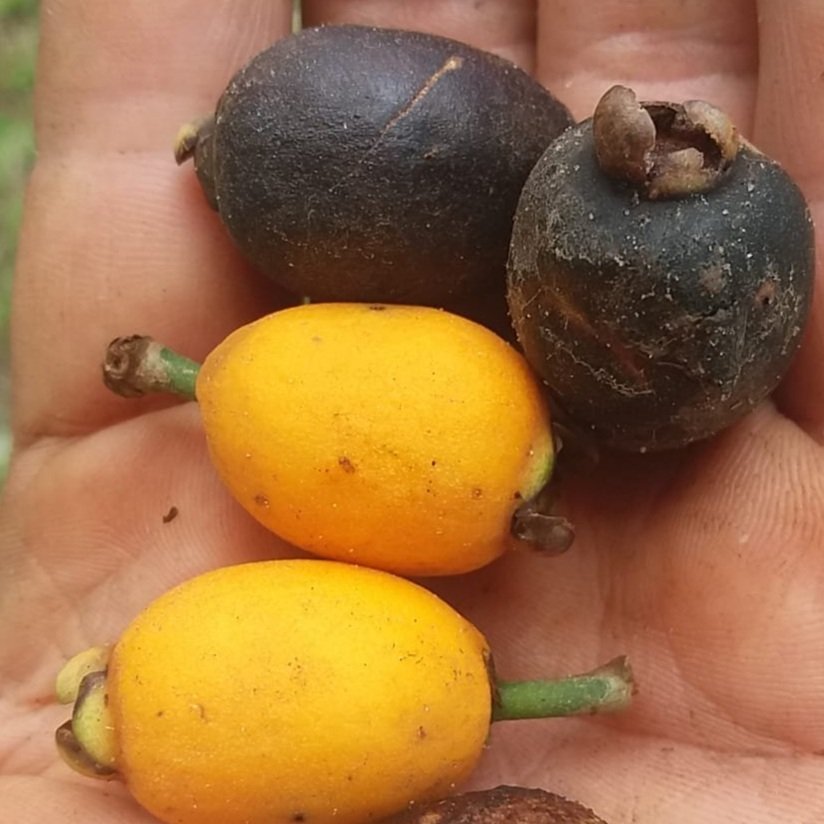Eugenia Itapemirimensis
Seeds were imported from Brazil. Eugenia itapemirimensis is a rare, slow-growing species native to the Atlantic Forest region along the northern coast of Bahia, Brazil. The fruit is collected from the wild for local use and is sometimes grown in home gardens. It is typically consumed fresh or turned into jellies, with its thin, fleshy pulp offering a subtly sweet taste. These seeds come from a tree found in Una, Bahia. Una, Bahia, experiences a tropical climate with warm temperatures and high humidity throughout the year. It corresponds to USDA Hardiness Zones 10-11, with average minimum temperatures between 30°F and 40°F (-1°C to 4°C), comparable to regions like southern Florida and Hawaii. Seeds are shipped in humid vermiculite.
Seeds were imported from Brazil. Eugenia itapemirimensis is a rare, slow-growing species native to the Atlantic Forest region along the northern coast of Bahia, Brazil. The fruit is collected from the wild for local use and is sometimes grown in home gardens. It is typically consumed fresh or turned into jellies, with its thin, fleshy pulp offering a subtly sweet taste. These seeds come from a tree found in Una, Bahia. Una, Bahia, experiences a tropical climate with warm temperatures and high humidity throughout the year. It corresponds to USDA Hardiness Zones 10-11, with average minimum temperatures between 30°F and 40°F (-1°C to 4°C), comparable to regions like southern Florida and Hawaii. Seeds are shipped in humid vermiculite.
Seeds were imported from Brazil. Eugenia itapemirimensis is a rare, slow-growing species native to the Atlantic Forest region along the northern coast of Bahia, Brazil. The fruit is collected from the wild for local use and is sometimes grown in home gardens. It is typically consumed fresh or turned into jellies, with its thin, fleshy pulp offering a subtly sweet taste. These seeds come from a tree found in Una, Bahia. Una, Bahia, experiences a tropical climate with warm temperatures and high humidity throughout the year. It corresponds to USDA Hardiness Zones 10-11, with average minimum temperatures between 30°F and 40°F (-1°C to 4°C), comparable to regions like southern Florida and Hawaii. Seeds are shipped in humid vermiculite.



